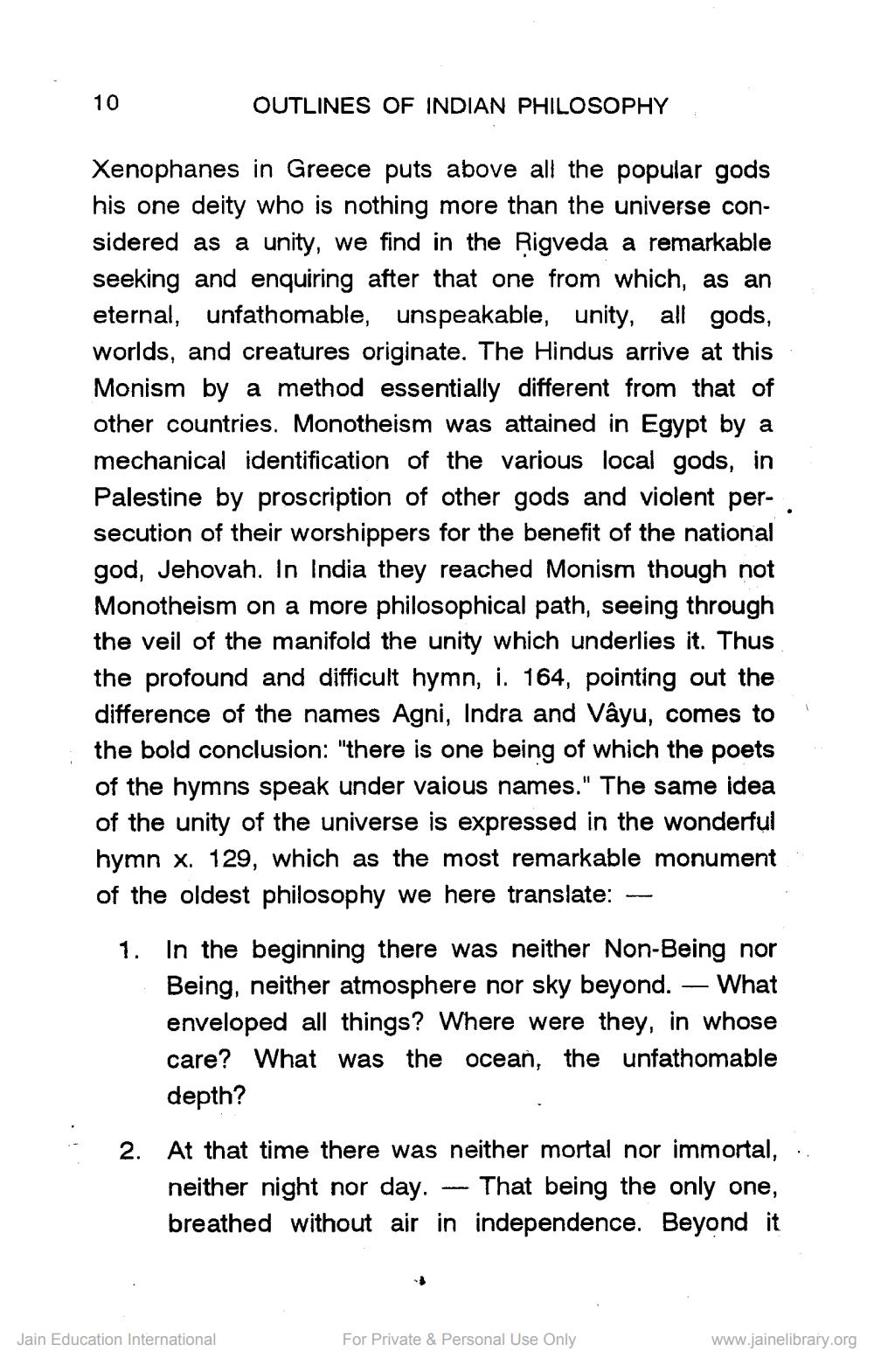________________
10
OUTLINES OF INDIAN PHILOSOPHY,
Xenophanes in Greece puts above all the popular gods his one deity who is nothing more than the universe considered as a unity, we find in the Rigveda a remarkable seeking and enquiring after that one from which, as an eternal, unfathomable, unspeakable, unity, all gods, worlds, and creatures originate. The Hindus arrive at this Monism by a method essentially different from that of other countries. Monotheism was attained in Egypt by a mechanical identification of the various local gods, in Palestine by proscription of other gods and violent persecution of their worshippers for the benefit of the national god, Jehovah. In India they reached Monism though not Monotheism on a more philosophical path, seeing through the veil of the manifold the unity which underlies it. Thus the profound and difficult hymn, i. 164, pointing out the difference of the names Agni, Indra and Vâyu, comes to the bold conclusion: "there is one being of which the poets of the hymns speak under vaious names." The same idea of the unity of the universe is expressed in the wonderful hymn x. 129, which as the most remarkable monument of the oldest philosophy we here translate: --
1. In the beginning there was neither Non-Being nor
Being, neither atmosphere nor sky beyond. — What enveloped all things? Where were they, in whose care? What was the ocean, the unfathomable depth?
2. At that time there was neither mortal nor immortal,
neither night nor day. - That being the only one, breathed without air in independence. Beyond it
Jain Education International
For Private & Personal Use Only
www.jainelibrary.org




